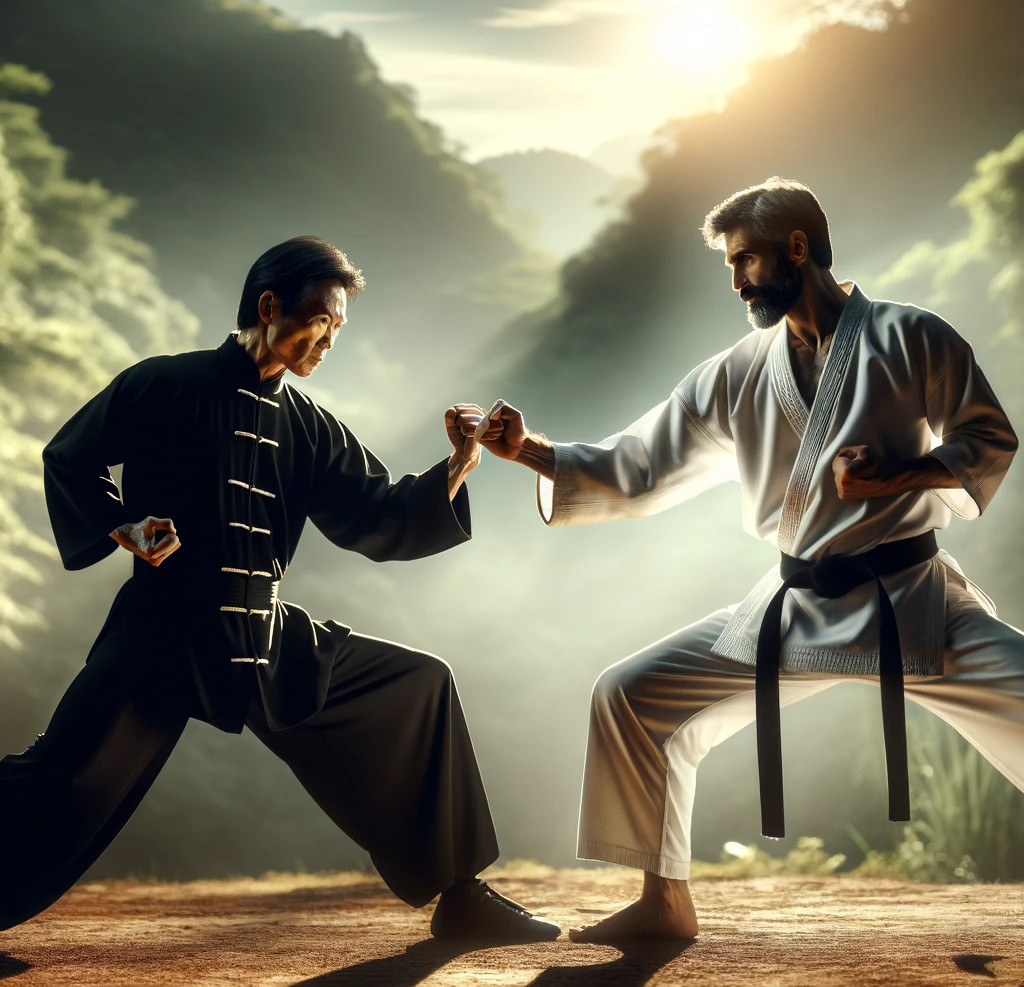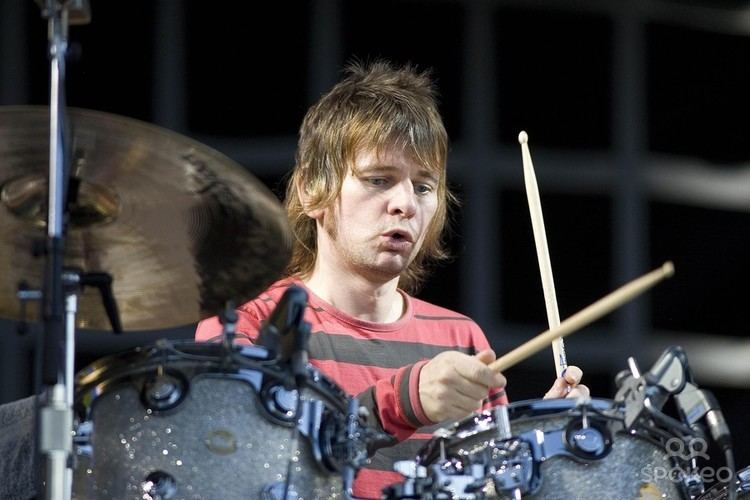The Karate Kid Legacy: Impact And Influence On Martial Arts Cinema

Table of Contents
Revolutionizing the Martial Arts Movie Genre
Early martial arts films often leaned heavily on exploitation, showcasing excessive violence and simplistic plots. The Karate Kid dared to be different. It revolutionized the genre by prioritizing character development and emotional depth over relentless fight choreography, setting a new standard for "family-friendly martial arts" films.
- Emphasized character development over pure fight choreography: Instead of relying solely on acrobatic fight sequences, the film invested heavily in developing the personalities of Daniel LaRusso and Mr. Miyagi, making their journey deeply relatable to audiences.
- Focused on themes of mentorship, perseverance, and self-discovery: The narrative moved beyond simple competition, exploring deeper themes of self-improvement, overcoming adversity, and the power of belief in oneself. This marked a significant departure from the purely action-oriented approach of many earlier martial arts films.
- Introduced a more accessible and family-friendly approach to the genre: By emphasizing these character-driven narratives and reducing graphic violence, The Karate Kid opened the doors of the martial arts film genre to a much wider audience, paving the way for a more inclusive and accessible form of cinematic entertainment. This evolution of martial arts cinema dramatically broadened its appeal.
The Impact of Mr. Miyagi's Mentorship
The mentor-student relationship between Daniel LaRusso and Mr. Miyagi is arguably the film's most enduring legacy. Mr. Miyagi, with his enigmatic wisdom and unconventional training methods, became an iconic figure in popular culture and a blueprint for countless subsequent martial arts mentors.
- The archetype of the wise, enigmatic mentor became a staple in subsequent martial arts films: Mr. Miyagi's quiet strength and unconventional teaching style inspired countless imitations and homages in later films, establishing a powerful archetype for the wise, guiding mentor figure.
- Mr. Miyagi's unconventional training methods inspired creative fight choreography and storytelling in later films: The seemingly mundane tasks—painting the fence, waxing the car—which concealed sophisticated martial arts training, became a template for creative storytelling and fight choreography in later films.
- The emotional depth of their bond resonated with audiences and contributed to the film's success: The deep, genuine affection between Daniel and Mr. Miyagi transcended the master-student dynamic, forming the emotional core of the film and resonating deeply with audiences of all ages. This emotional depth became a hallmark of successful martial arts films. The "Mr. Miyagi influence" is still felt today.
Influence on Storytelling and Themes
The Karate Kid didn't just revolutionize fight scenes; it revolutionized the narratives themselves. The film incorporated complex themes that broadened the appeal of martial arts stories beyond simple physical combat.
- The exploration of bullying, overcoming adversity, and self-belief became common themes in the genre: The film's central conflict—Daniel facing bullying and prejudice—became a common thread in later martial arts films, adding depth and relatability to the storylines.
- The film’s focus on emotional intelligence and inner strength broadened the appeal of martial arts narratives: The emphasis on emotional growth and inner peace resonated deeply with audiences, demonstrating that true strength comes not only from physical prowess but also from mental and emotional resilience. This "emotional depth in martial arts cinema" is now widely appreciated.
- The incorporation of coming-of-age elements added another layer to the storytelling: Daniel's journey of self-discovery and maturation added a universal coming-of-age element that broadened the film's appeal beyond the martial arts genre. This made the film appeal to a wider demographic, influencing many "coming-of-age martial arts movies" since.
The Lasting Legacy in Popular Culture
The impact of The Karate Kid extends far beyond the realm of martial arts cinema. Its cultural impact continues to resonate in various aspects of modern life.
- The impact on fashion and popular culture (e.g., karate uniforms, specific training techniques): The film popularized elements of karate culture, from the classic karate gi to specific training techniques like the crane kick, which became instantly recognizable and iconic.
- The numerous sequels, remakes, and spin-offs showcasing its sustained popularity: The franchise's longevity and continued success in various forms (including the Cobra Kai Netflix series) are a testament to its lasting appeal and enduring influence on popular culture.
- Its continuing relevance in discussions about mentorship, self-improvement, and overcoming challenges: The enduring themes of mentorship, perseverance, and self-belief explored in The Karate Kid continue to resonate with audiences today, making it a timeless story about personal growth and overcoming adversity. The "enduring legacy of the Karate Kid" is undeniable.
Conclusion: The Enduring Power of the Karate Kid Legacy
The Karate Kid didn't just make a martial arts film; it created a cultural phenomenon. By prioritizing character development, exploring complex themes, and introducing an iconic mentor-student relationship, it revolutionized the genre. Its influence on storytelling, character archetypes, and the broader themes it tackled continues to resonate in martial arts cinema and popular culture.
We encourage you to revisit the Karate Kid franchise and analyze its impact on your favorite martial arts films. Consider the "Karate Kid impact" on the evolution of the genre and discuss your thoughts on its "legacy of martial arts films." Further research into the film's production and cultural reception will reveal even more about its lasting power. Explore the world of "martial arts cinema analysis" – and discover the enduring magic of The Karate Kid.

Featured Posts
-
 Clinton Vs Congress The Fight Over The One Percent Budget
May 23, 2025
Clinton Vs Congress The Fight Over The One Percent Budget
May 23, 2025 -
 Is Dan Lawrence Englands Next Test Opening Batsman
May 23, 2025
Is Dan Lawrence Englands Next Test Opening Batsman
May 23, 2025 -
 Zak Starkey Returns As The Whos Drummer Pete Townshend Confirms
May 23, 2025
Zak Starkey Returns As The Whos Drummer Pete Townshend Confirms
May 23, 2025 -
 Rezultati Ta Rozklad Matchiv Ligi Natsiy 20 03 2025
May 23, 2025
Rezultati Ta Rozklad Matchiv Ligi Natsiy 20 03 2025
May 23, 2025 -
 Cat Deeleys Stunning Black Swimsuit A This Morning Break
May 23, 2025
Cat Deeleys Stunning Black Swimsuit A This Morning Break
May 23, 2025
Latest Posts
-
 Fans React Vybz Kartels Phenomenal Brooklyn Shows
May 23, 2025
Fans React Vybz Kartels Phenomenal Brooklyn Shows
May 23, 2025 -
 Exploring The Rum Culture Kartels Role According To Stabroek News
May 23, 2025
Exploring The Rum Culture Kartels Role According To Stabroek News
May 23, 2025 -
 Vybz Kartel Electrifies Brooklyn With Sold Out Performances
May 23, 2025
Vybz Kartel Electrifies Brooklyn With Sold Out Performances
May 23, 2025 -
 Rum Kartel And Guyana Understanding The Cultural Connections Stabroek News
May 23, 2025
Rum Kartel And Guyana Understanding The Cultural Connections Stabroek News
May 23, 2025 -
 Vybz Kartel Sold Out Brooklyn Shows Impress Fans
May 23, 2025
Vybz Kartel Sold Out Brooklyn Shows Impress Fans
May 23, 2025
